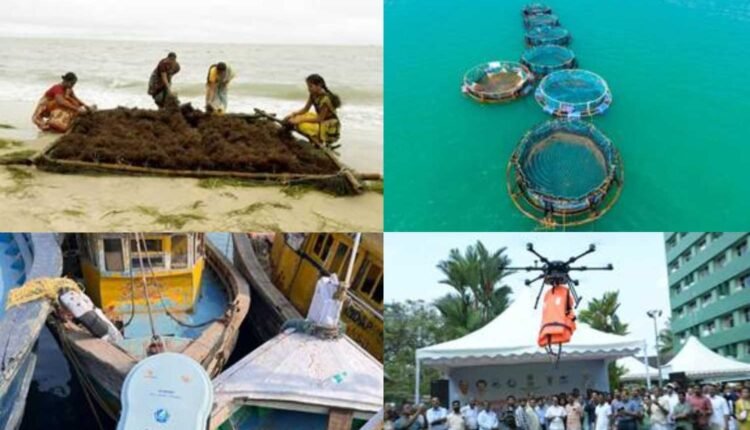New Delhi: The Inclusive Fisheries Outreach, a first-of-its-kind initiative by the Department of Fisheries (DoF), connected more than 15,000 fishers and fish farmers from 34 States and Union Territories to policymakers through virtual dialogues held between April and September 2025.
Led by Dr. Abhilaksh Likhi, Secretary, DoF, the programme aimed to capture grassroots feedback and shape the future of India’s fisheries and aquaculture sector.
Technology, inclusion, and empowerment
Fishers and fish farmers across coastal, inland, and hilly regions highlighted key needs such as quality seed, affordable feed, and better infrastructure. They pressed for brood banks, local feed mills, cold storage, and solar-powered aquaculture systems.
They also welcomed the installation of free vessel transponders. These devices, they said, improved PFZ advisories, cyclone alerts, and safety notifications. Some participants suggested drone-based delivery systems and satellite tracking to expand markets and ensure vessel security.
Marketing and capacity building
On marketing, fishers called for new fish markets, kiosks, and processing facilities to improve returns and cut post-harvest losses. In addition, they sought capacity-building programmes, water testing laboratories, and stronger disease management support.
Dr. Likhi said the consultations created a “two-way communication channel” between communities and policymakers. “The insights gathered will help align government schemes like PMMSY, PM-MKSSY, and FIDF with ground realities,” he added.
Fisheries in India’s economy
India’s fisheries sector employs nearly 3 crore people, produces 195 lakh tonnes of fish annually, and contributes 8% to global output. Exports touched ₹60,524 crore in 2023–24, while annual growth averaged 8.74%.
The Department is setting up 34 fisheries clusters focused on species-specific value chains, women’s empowerment, and export promotion. These clusters, officials said, will support the government’s larger vision of Viksit Bharat 2047.
Toward inclusive policymaking
Dr. Likhi said the outreach was designed to make policymaking more inclusive. “When fishers’ voices are heard, development becomes equitable,” he noted. “Inclusive Fisheries Outreach is not just consultation—it’s collaboration.”

